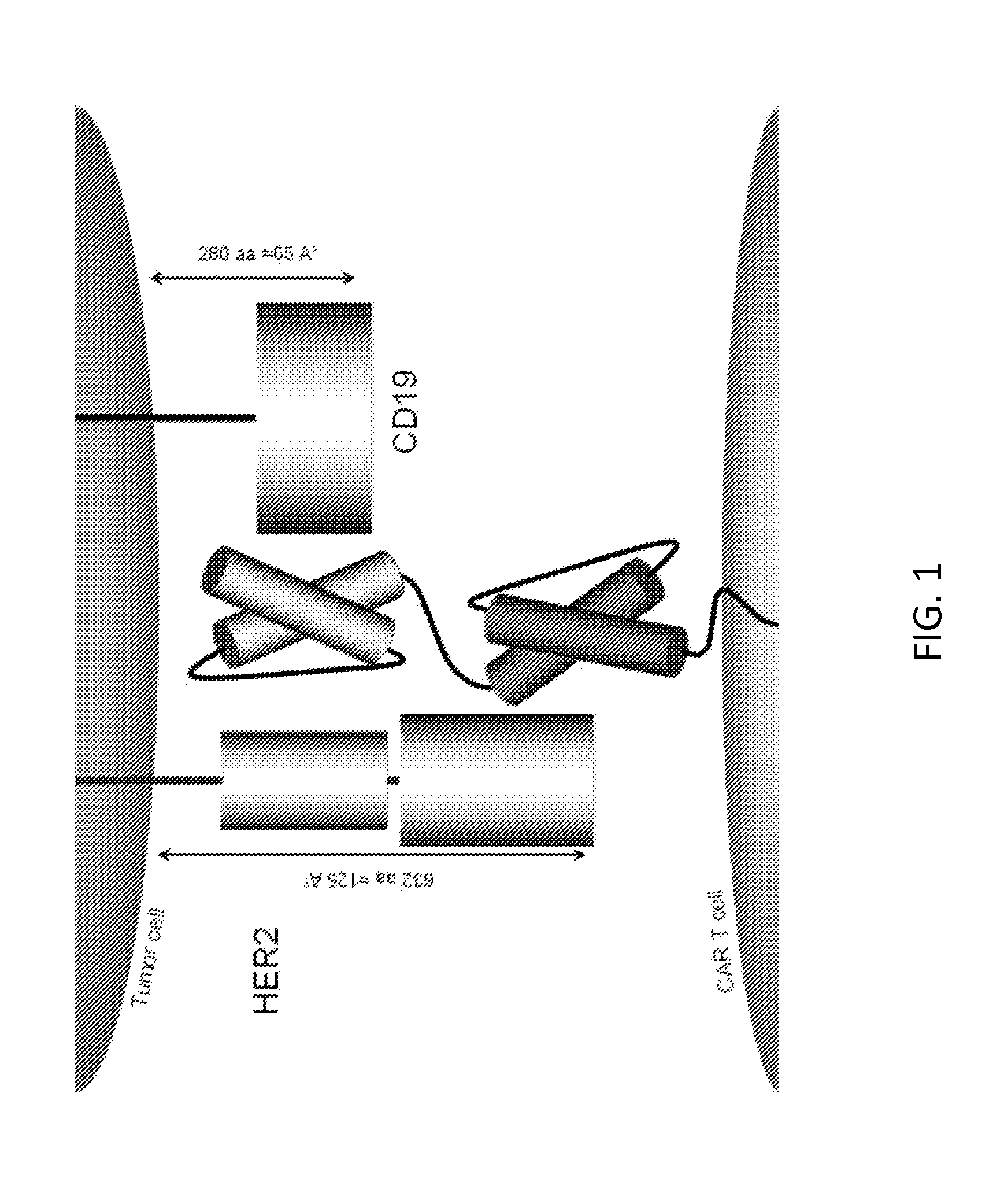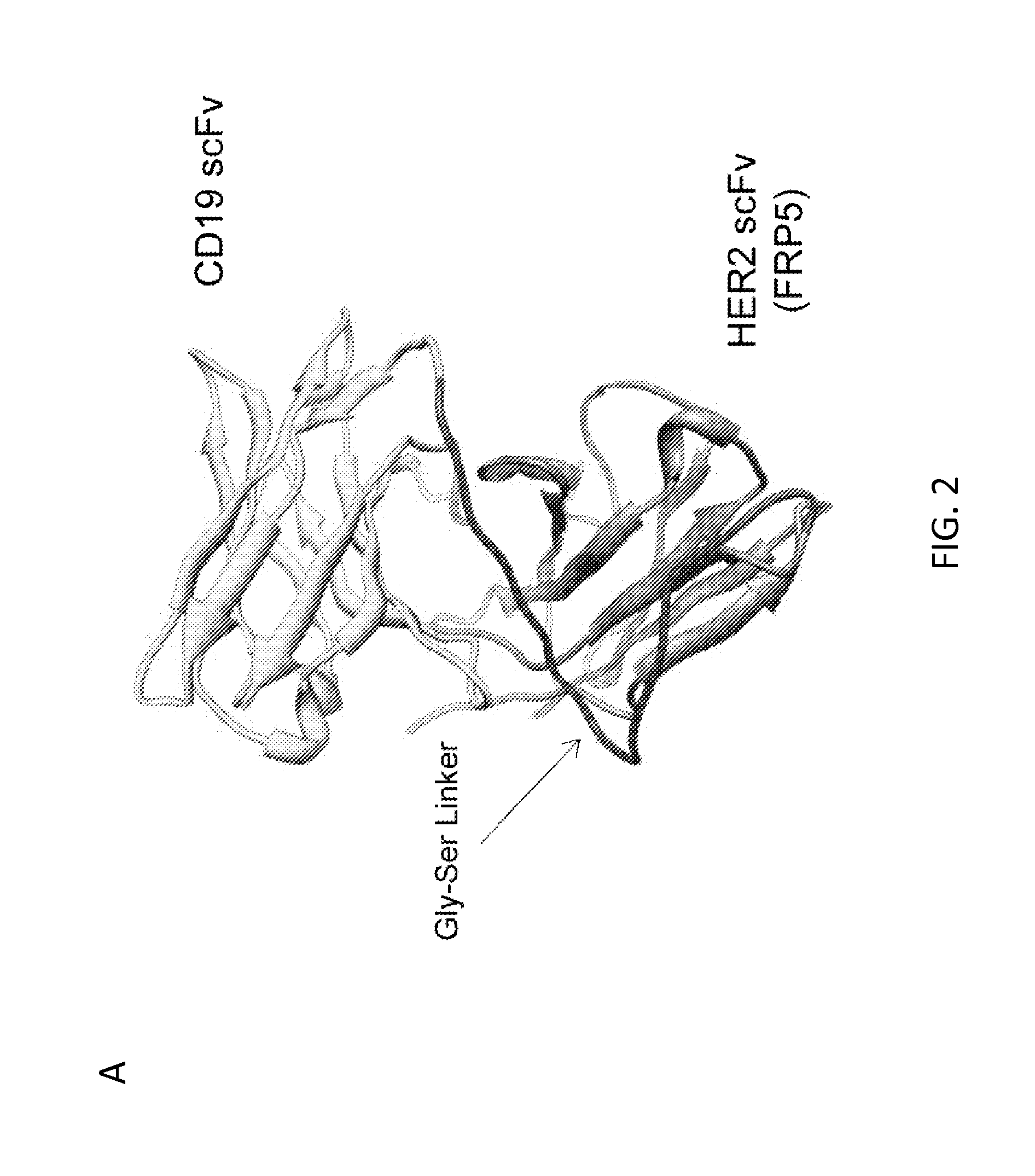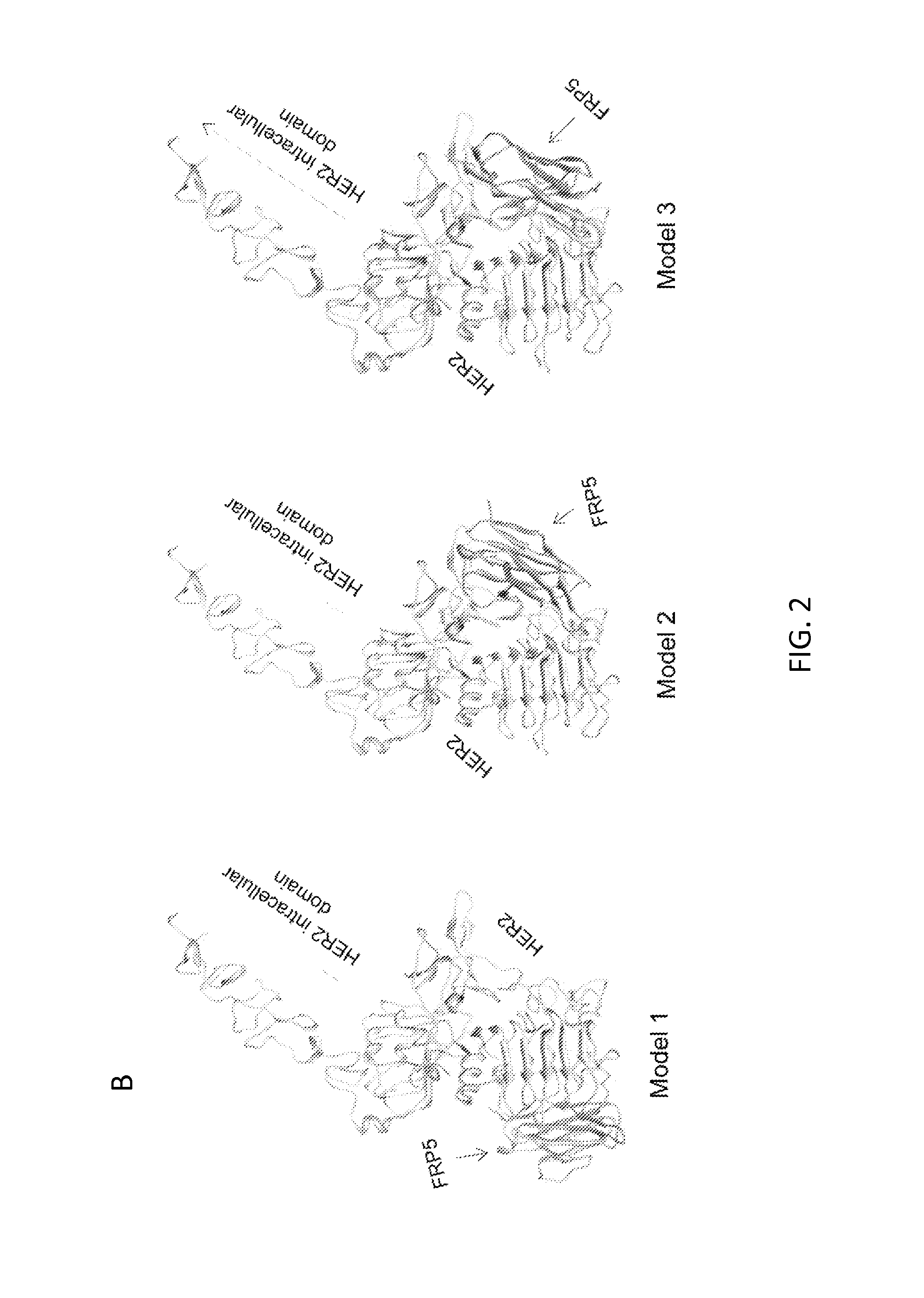Chimeric antigen receptor for bispecific activation and targeting of t lymphocytes
- Summary
- Abstract
- Description
- Claims
- Application Information
AI Technical Summary
Benefits of technology
Problems solved by technology
Method used
Image
Examples
example 1
General Embodiments of the Invention
[0147]Adoptive immunotherapy using activated and / or expanded CMV- or EBV-specific cytotoxic T lymphocytes (CTLs) has been successful in preventing malignant diseases associated with these viruses (Riddell et al., 1992; Walter et al., 1995; Rooney et al., 1998; Heslop et al., 1996). EBV-specific CTLs also had antitumor effects: none of the patient who received CTLs prophylactically developed lymphoma, in contrast to 11.5% of the controls (Rooney et al., 1998). Further, 11 of 13 patients who received CTLs as treatment for overt lymphoma achieved complete remissions (Gottschalk et al., 2005; Pakakasama et al., 2004; Gottschalk et al., 2001). The use of autologous EBV-specific CTLs has also been evaluated for patients with EBV-positive lymphomas and nasopharyngeal cancer with encouraging results (Straathof et al., 2005; Louis et al., 2008; Bollard et al., 2004). Beyond EBV-specific CTLs, autologous ex vivo expanded tumor infiltrating lymphocytes or T-...
specific embodiments
[0155]In specific embodiments of the invention: a) computational platforms predict the optimum structure (s) for an exemplary HER2 / VEGF-A bispecific TanCAR molecule that will simultaneously dock to both target molecules, b) bispecific TanCAR T cells exert distinct functionality against either antigen alone as well as enhanced functionality against both antigens simultaneously, and C) that HER2 / VEGF-A TanCAR T cells exhibit enhanced antitumor activity against established tumor xenografts compared to T cells targeting HER2 or VEGF-A alone or a pooled product thereof.
[0156]Modeling and Construction of a HER2 / VEGF-A Bispecific TanCAR Molecule. One can use computational platforms to design the most favorable TanCAR models that will dock to both HER2 and VEGF-A (as examples only) simultaneously with the lowest energy conformations predicting the highest avidity to both targets. Thereafter, one can synthesize up to ten (for example) most optimal TanCARs using chemical synthesis and convent...
example 2
A Chimeric Antigen Receptor Molecule Mediates Bispecific Activation and Targeting of T Lymphocytes
[0187]BACKGROUND: The downregulation or mutation of target antigens is a common tactic creating antigen loss escape variants. Targeting multiple antigens on tumor cells, simultaneously, is useful to offset this escape mechanism and possibly allow for simultaneous targeting of the tumor and elements of its microenvironment.
[0188]METHODS: The inventors used protein structure prediction and docking to construct a chimeric antigen receptor (CAR) molecule exodomain by joining two single chain variable fragments (scFv) molecules specific for CD19 and HER2 (as examples only). While CD19 and HER2 are not naturally coexpressed on normal or malignant mammalian cells, using them allowed the inventors to distinctly test the bispecific functionality of this CAR and its ability to activate T cells by binding to either or both target molecules. This exodomain was tethered to a hinge and transmembrane ...
PUM
 Login to View More
Login to View More Abstract
Description
Claims
Application Information
 Login to View More
Login to View More - R&D
- Intellectual Property
- Life Sciences
- Materials
- Tech Scout
- Unparalleled Data Quality
- Higher Quality Content
- 60% Fewer Hallucinations
Browse by: Latest US Patents, China's latest patents, Technical Efficacy Thesaurus, Application Domain, Technology Topic, Popular Technical Reports.
© 2025 PatSnap. All rights reserved.Legal|Privacy policy|Modern Slavery Act Transparency Statement|Sitemap|About US| Contact US: help@patsnap.com



